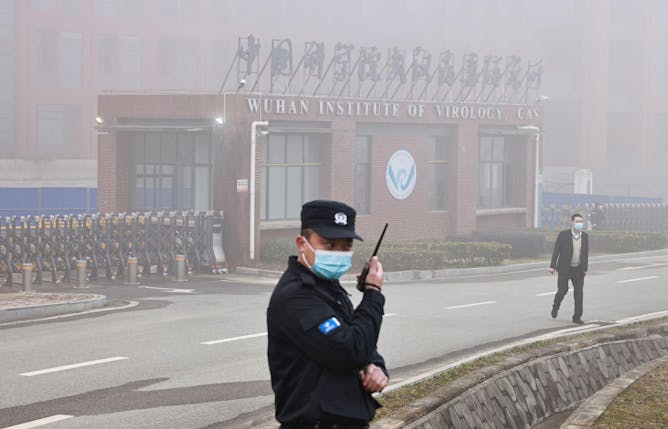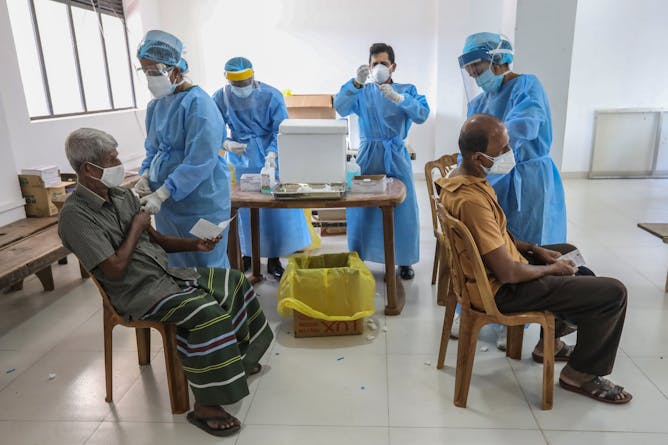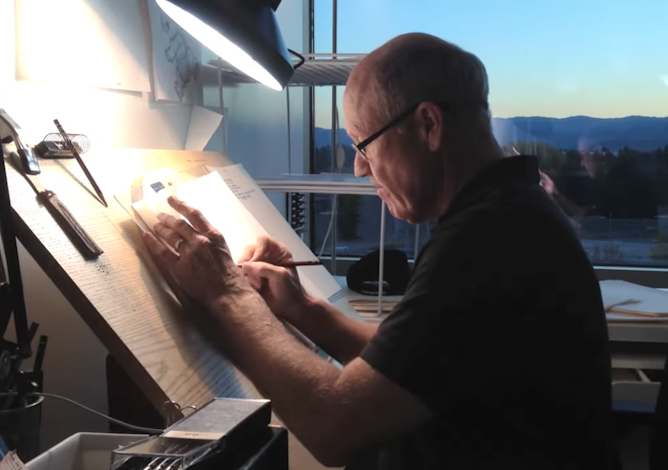|
|
|
|
The theory that the pandemic started with the coronavirus leaking from a lab may never be proven. But we can still learn a lot from its rise, fall and rise again. The lab-leak theory was hastily dismissed early on in the pandemic partly because of who raised it, argues Peter Knight. Because it was put forward by serial peddlers of conspiracy theories and misinformation – including Donald Trump – it wasn’t given proper consideration.
But it’s also been long-lived because of how we see the world. Because we’re so ready to identify things as being definitely conspiratorial or definitely not, when we encounter the reality of life, with its confusing, messy details and many coincidences, we’re very quick to see grand master plans and mysterious cover-ups that aren’t there.
Though the most likely explanation for the virus is a natural one, that doesn’t make the pandemic a natural disaster. The last 18 months have revealed just how much it’s actually society and its policies, not nature, that drives the development of such disasters, for better or worse. To start our new series on resilient recovery, Ilan Kelman has used this idea to offer up a six-point pandemic build-back plan to help prevent such a
catastrophe happening again. Watch out for more from this series throughout the week.
And finally, we learn how artists who can’t see things in their “mind’s eye” are able to create even though they can’t visualise.
|
Rob Reddick
Commissioning Editor, COVID-19
|

|
|

Reuters/Alamy Stock Photo
Peter Knight, University of Manchester
New theories about the lab leak don't make the case for it any stronger, but do reveal the messiness of how historical events play out.
|

Chamila Karunarathne/EPA-EFE
Ilan Kelman, UCL
Natural disaster is a misnomer. Disasters occur due to societal failures, not nature.
|

Glen Keane at work.
Google ATAP
Matthew MacKisack, University of Exeter
The condition challenges the centuries-old idea that all great artists are able to envision what they're drawing.
|
Health + Medicine
|
-
Sophie Harman, Queen Mary University of London; Eugene Richardson, Harvard Medical School ; Parsa Erfani, Harvard Medical School
Covax was doomed to failure from the start. It is already running into three major problems.
-
John Hart, Murdoch Children's Research Institute; Fiona Russell, The University of Melbourne
China has administered more than one billion doses of its homegrown COVID-19 vaccines, the majority of which were developed by local companies Sinovac and Sinopharm. So what do we know about them?
-
James Brown, Aston University; Alex Conner, University of Birmingham
Around 2.5% of adults are thought to live with ADHD.
|
|
Politics + Society
|
-
Paul Whiteley, University of Essex
The gradual waning of the 'vaccine boost' combined with tactical progressive voting and local issues to sink the Conservatives in a 'blue wall' seat.
-
Malavika Rao, Graduate Institute – Institut de hautes études internationales et du développement (IHEID)
India had the legal ability to classify migrant workers as internally displaced and offer them protection, but instead they were marooned and left to the mercy of fate.
-
Arshin Adib-Moghaddam, SOAS, University of London
Real change will come from the streets, not the ballot box.
|
|
Science + Technology
|
-
Daniel Miller, UCL
A wider understanding of cultural values will be crucial to the successful implementation of contact-tracing technology across the world.
-
Jack Mark Whittaker, University of Surrey; Mark Button, University of Portsmouth
The scambaiting community aims to disrupt online scammers – but some of their activity is ethically troubling.
|
|
Environment + Energy
|
-
Laura Thomas-Walters, University of Stirling; Diogo Veríssimo, University of Oxford
Blackfish struck an emotional chord over the plight of a traumatised performing whale, prompting real change.
|
|
Arts + Culture
|
-
Daniel Cook, University of Dundee
Best known for his big historical novels, Scott was also a bestselling poet and a fine short-story writer who brought a vivid portrayal of Scots and Scotland to the world.
|
|
| |
Featured events
|

|
Online, Birmingham, Birmingham, B15 2TT, United Kingdom of Great Britain and Northern Ireland — University of Birmingham
|

|
University of Essex, Wivenhoe Park, Colchester, Essex, CO4 3SQ, United Kingdom of Great Britain and Northern Ireland — University of Essex
|

|
University of Reading, Whiteknights, PO Box 217 , Reading , Reading, RG6 6AH, United Kingdom of Great Britain and Northern Ireland — University of Reading
|

|
University of Essex, Wivenhoe Park, Colchester, Essex, CO4 3SQ, United Kingdom of Great Britain and Northern Ireland — University of Essex
|
|
|
|
| |
| |
| |
| |
| |
|
|
|
|
|
|
|